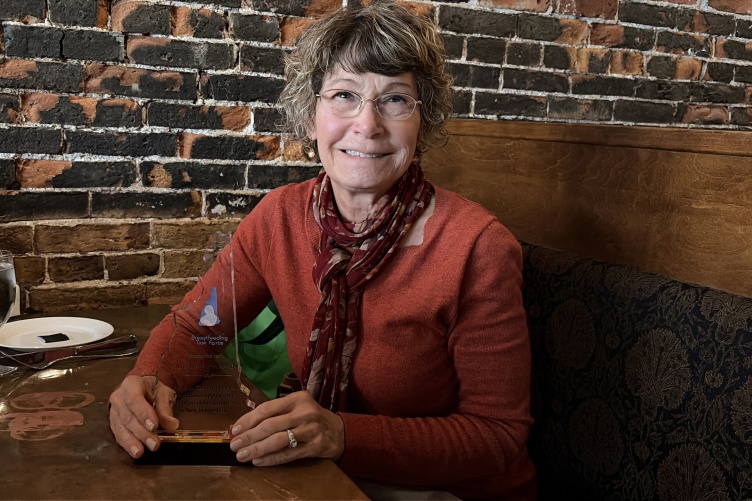
On the heels of her retirement, Karla Armenti is being recognized for her career dedicated to improving workplace safety. More specifically, Armenti has been honored by the New Hampshire Breastfeeding Task Force for her commitment to the protection, support, and promotion of breastfeeding in New Hampshire.
The New Hampshire Breastfeeding Task Force, a statewide nonprofit supporting breastfeeding through education and advocacy, recognized Armenti for her longstanding commitment to research that improves the health and well-being of workers and families across New Hampshire. Most recently, her program’s 2024 statewide business survey shed light on gaps in workplace lactation support ahead of the state’s 2025 lactation accommodation law.
The study, conducted through the Institute on Disability (IOD) NH Occupational Health Surveillance Program (NH OHSP), revealed that while many employers have the physical infrastructure to support nursing employees, fewer have formal policies or effective communication in place. This work underscores the need for systemic approaches that make equity and inclusion part of every workplace’s foundation.
For Armenti, the recognition highlights a lifelong belief that worker health is inseparable from community well-being.
“Supporting breastfeeding parents in the workplace isn’t just a matter of comfort — it’s a matter of health, safety, and inclusion. When employers provide time, space, and respect for nursing needs, they help build a culture where every worker can thrive,” Armenti says.
A national leader in occupational health surveillance, Armenti has served on multiple NIOSH workgroups and the NIOSH Board of Scientific Counselors, advising on national research priorities and standards of excellence in worker health. She joined the IOD in 2016, bringing with her the NH OHSP, and has taught environmental and occupational health in the University of New Hampshire’s Master of Public Health program for more than 15 years. Her teaching and research consistently emphasize the social, political, and economic contexts that shape occupational and environmental health outcomes.
-
Written By:
Romy Eberle | Institute on Disability
















































